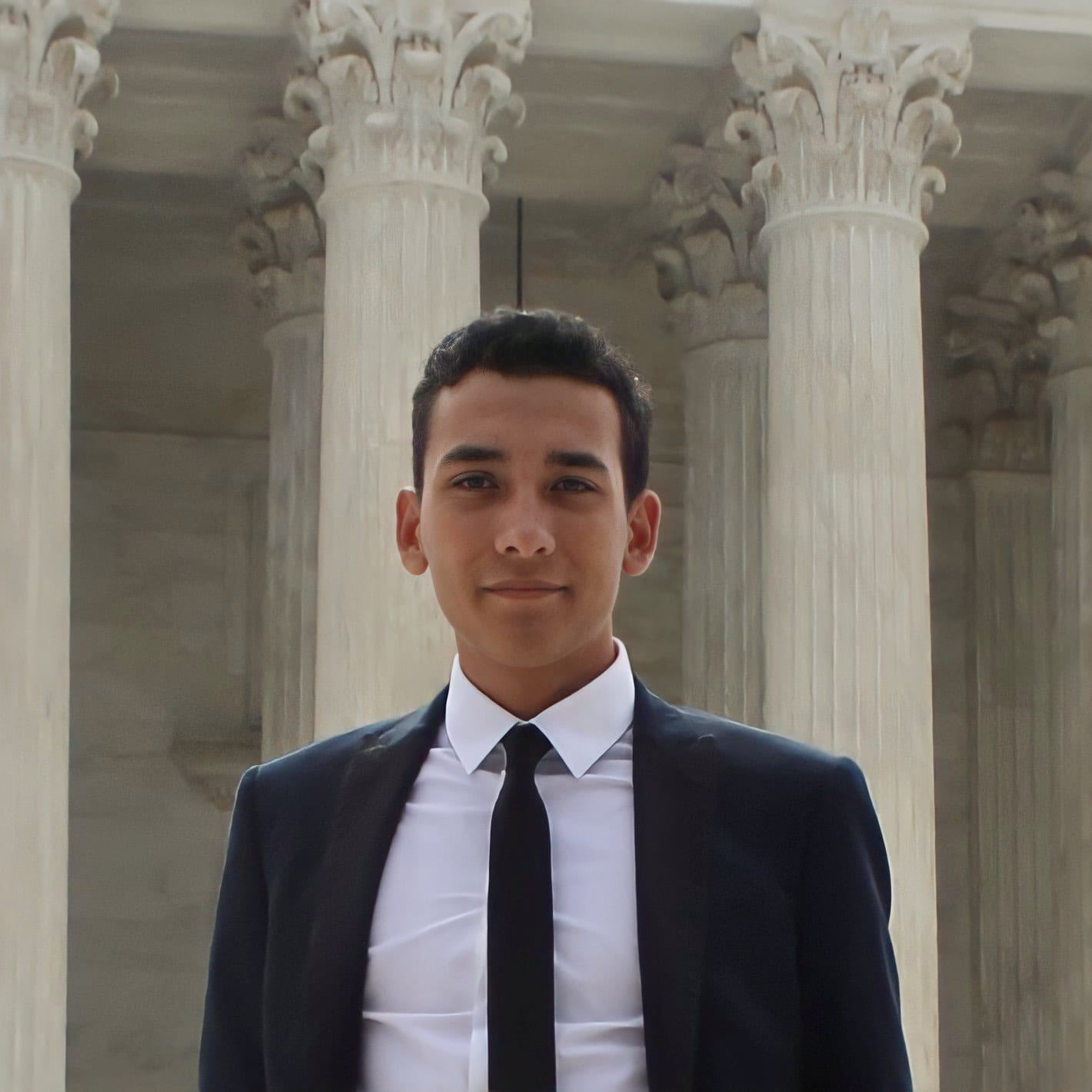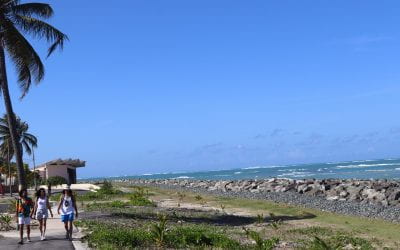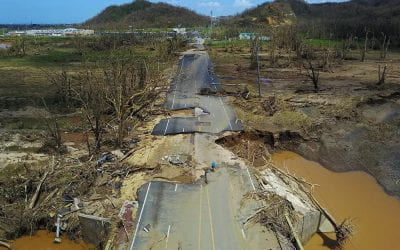
About the Author
Víctor Rangel is a rising Senior at Harvard College studying Government with a secondary in Global Health and Health Policy. He is originally from Matamoros, Mexico, but moved to Brownsville, Texas, at a young age. Víctor hopes to continue his work in global health after college.
DRCLAS awarded Victor Rangel an Independent Experience Stipend (IES) for his work with Fronteras en Salud Global. The Independent Experience Stipend is a program which aims to encourage and aid currently enrolled Harvard students interested in pursuing substantive, remote professional experiences related to Latin America and the Caribbean. For more information, visit the program web page.
Fronteras en Salud Global
In January of 2020, I traveled to Mexico City as part of the David Rockefeller Center for Latin American Studies (DRCLAS) Mexico Winternship Program. As a first-year at Harvard with little idea of what I wanted to study, I sought to explore different career fields related to Latin America, and I was luckily paired with the Global Health Institute of the Tecnológico de Monterrey. At the time, I knew very little about what global health was, or how I, as a student, could make any contributions to the massive problems the field aimed to tackle.
However, with the help of my supervisor and mentor Dr. Hector Carrasco, I learned that global health is a multidisciplinary field in which people of all academic backgrounds should have a voice. While my internship made me fall in love with the field, I expected my work to end after my three-week stay in the Mexican capital.

Global Health Institute of the Tecnológico de Monterrey.
However, near the end of my internship, I was invited to join a group of students, doctors and academics who were embarking on a journey to create an online academic journal, Fronteras en Salud Global, run by and for students in Latin America interested in global health. Given that this was shortly before the start of the Covid-19 pandemic, I naively believed that an online platform would not be ideal and wondered whether there would even be sufficient interest in the topic to spark fruitful discussion around the world. Needless to say, I was incredibly wrong.
The pandemic not only created the necessary demand for online platforms, but also sparked an unprecedented interest in the field of global health. It was clear to me then that our journal was not only going to be immensely useful for the education of many, but it was also necessary for the exchange of ideas that is so vital to solving global health crises. My fellow board members, ranging from surgical residents from Mexico City to the former Director General of Quality and Education in Health for the Mexican Ministry of Health, review dozens of submissions monthly. Some of the latest include articles about the role of artificial intelligence in identifying potential solutions for antibiotic resistance and the challenges faced by lactating mothers when immigrating.
It has now been more than two years since I joined Fronteras en Salud Global, and I continue to serve as one of the editors for the journal. As an editor, I am responsible for screening submissions to our journal, and I see my job as making academia more accessible for students. Not only do we demystify the process of academic publication and provide training and writing workshops for students, we also provide all submissions with detailed feedback on how to improve the article regardless of the ultimate decision to publish or not. It is this empowerment of students and the encouragement of academic discourse on pressing issues related to global health that led Fronteras en Salud Global to be named a finalist for the Breakthrough of the Year Award for the Falling Walls International Conference on Future Breakthroughs, a conference dedicated to providing a platform for connecting varying sectors like science and business to tackle the most pressing issues in science from a wide array of disciplines.

I realize how drastically my perspective of global health and Latin America has changed since my Wintership. Prior to my time with Fronteras, I thought that the field of global health was limited to medicine and the treatment of disease. However, my perception of health has expanded to include so much more. Global health does include medicine and the treatment of disease, but also emphasizes disease prevention and health promotion. Additionally, diseases are one of many fields in global health. Throughout my time as an editor for Fronteras, I have reviewed articles regarding mental health, domestic violence, nutrition, maternity, immigration and more. As a result, I now have a more complete understanding of health and the role that platforms like Fronteras en Salud Global play in raising awareness for issues related to global health.
I feel incredibly privileged to have had the opportunity to work with the board of the organization and push forward the mission of the journal. I look forward to continuing my work indefinitely and helping foster interest in global health in Latin America and around the world. Had it not been for DRCLAS, I would not have met the incredible people that invited me to join them on what would become a transformative experience.
More Student Views
Weapons of Mass Construction: Building a Puerto Rico for the People
I zip up my raincoat and turn on my headlamp as we tread along a damp trail in El Yunque National Rainforest, Puerto Rico.
Climbing the Tepozteco: Meditations on Mexico
English + Español
With sweat trickling down my forehead, I meditated on the question: What does motivation look like?
Cultivating Resilience in Puerto Rico: Harvesting Fields of Change
As a born and raised Puerto Rican, my journey has always been intertwined with my homeland’s vibrant hues and resilient spirit.




